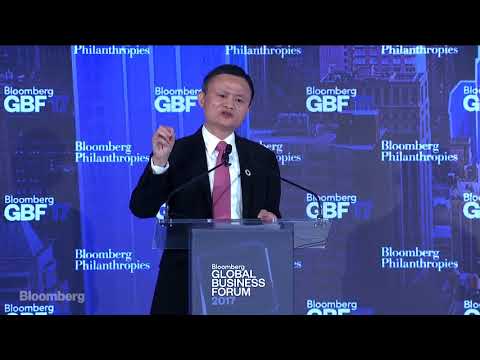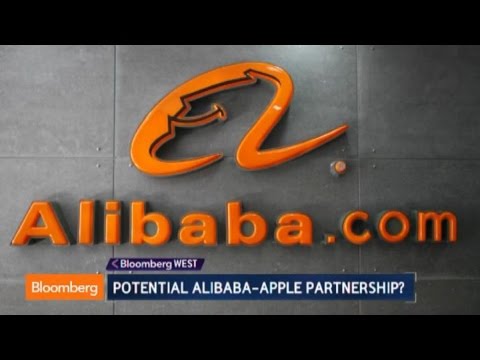What inspired Jack Ma to create Alibaba?
1. A Humble Beginning: Jack Ma, born Ma Yun in 1964 in Hangzhou, China, grew up in a modest family and faced numerous challenges throughout his life. From a young age, he developed a deep curiosity about the world and a strong desire to achieve something meaningful.
2. Encounter with the Internet: In 1995, while on a trip to the United States, Jack Ma was introduced to the internet for the first time. This encounter sparked his interest and ignited a passion within him to bring the power of the internet to China.
3. Frustration with Traditional Business Practices: Jack Ma observed that traditional business practices in China were often slow, bureaucratic, and lacked innovation. He saw an opportunity to revolutionize the way business was conducted in China and believed that the internet could be the catalyst for change.
4. The Birth of Alibaba: In 1999, Jack Ma, along with a group of friends, founded Alibaba in his apartment in Hangzhou. The initial goal of Alibaba was to create an online marketplace that would connect Chinese manufacturers with buyers around the world, thereby bypassing traditional intermediaries and reducing costs.
5. Mission to Empower Small Businesses: Jack Ma had a vision to empower small businesses and individuals who lacked access to the global market. He believed that by providing them with a platform to showcase their products and reach a wider audience, he could level the playing field and create opportunities for economic growth.
6. Facing Rejection and Overcoming Challenges: Jack Ma faced numerous rejections and obstacles in the early years of Alibaba. He struggled to secure funding and faced skepticism from investors who doubted the potential of e-commerce in China. However, he remained resilient and persevered, learning from failures and continuously adapting his strategies.
7. Embracing Innovation and Change: Jack Ma recognized the importance of innovation and embraced emerging technologies to stay ahead of the competition. Under his leadership, Alibaba diversified its services beyond e-commerce, venturing into areas such as cloud computing, digital payments, logistics, and entertainment.
8. A Vision for the Future: Jack Ma’s vision for Alibaba extends beyond just being a successful business. He envisions Alibaba as a platform that can transform industries, empower individuals, and contribute to the development of a digital economy. He believes in the power of technology to bridge gaps and create a more inclusive and sustainable future.
9. Philanthropic Endeavors: In addition to his entrepreneurial pursuits, Jack Ma is also known for his philanthropic efforts. He established the Jack Ma Foundation, which focuses on education, environmental protection, and public health initiatives. Through his philanthropy, he aims to make a positive impact on society and inspire others to give back.
10. Inspiring Others: Jack Ma’s journey and success story have inspired countless entrepreneurs and individuals around the world.
The Spark that Ignited the Alibaba Empire: Unraveling Jack Ma’s Inspirations
“The Spark that Ignited the Alibaba Empire: Unraveling Jack Ma’s Inspirations” delves into the fascinating story of what inspired Jack Ma to create Alibaba and how he turned it into the empire it is today. This article explores the key elements that ignited Jack Ma’s entrepreneurial journey and shaped the foundation of Alibaba.
1. From humble beginnings to global aspirations: Jack Ma’s upbringing in Hangzhou, China, played a crucial role in shaping his entrepreneurial spirit. Growing up in a modest family, Ma faced numerous challenges and setbacks, including multiple rejections from job applications. However, his perseverance and determination fueled his desire to create something extraordinary. Inspired by the success of Silicon Valley and the internet boom in the 1990s, Ma envisioned a platform that would connect Chinese businesses with the global market.
2. Selling hope and trust: One of the core inspirations behind Alibaba was Jack Ma’s belief in the power of e-commerce to empower small businesses and individuals. He recognized the untapped potential of the internet in China and saw an opportunity to bridge the gap between buyers and sellers. Ma wanted to create a platform where anyone, regardless of their background or resources, could start their own business and succeed. This vision of inclusivity and democratization of commerce became the driving force behind Alibaba’s success.
3. A brush with failure and the determination to succeed: In the early days of Alibaba, the company faced numerous challenges and setbacks. From a failed venture in the United States to intense competition from established players, Jack Ma encountered numerous obstacles. However, it was his unwavering determination and resilience that kept him going. He learned from his failures, adapted his strategies, and persevered through tough times. This ability to bounce back and turn adversity into opportunities became a defining characteristic of Alibaba’s journey.
4. A strong focus on innovation and disruption: Jack Ma understood the importance of staying ahead of the curve in a rapidly evolving digital landscape. He emphasized the need for constant innovation and disruption to stay relevant and competitive. Alibaba invested heavily in research and development, exploring emerging technologies and trends such as artificial intelligence, cloud computing, and digital payments. This forward-thinking approach allowed Alibaba to diversify its business offerings and expand into new markets.
5. A visionary leader with a passion for education: Jack Ma’s passion for education and belief in its transformative power played a significant role in shaping Alibaba’s corporate culture. He established Alibaba’s philanthropic arm, the Jack Ma Foundation, with a focus on improving education opportunities for underprivileged communities. Additionally, Ma championed entrepreneurship education, initiating programs and initiatives to foster innovation and entrepreneurial mindset among young people.
By unraveling Jack Ma’s inspirations, “The Spark that Ignited the Alibaba Empire” provides valuable insights into the journey of one of the world’s most successful entrepreneurs. From his humble beginnings to his unwavering determination and focus on innovation, Jack Ma’s story serves as an inspiration to aspiring entrepreneurs worldwide.
The Genesis of Alibaba: Unveiling the Motivation Behind its Creation
The Genesis of Alibaba: Unveiling the Motivation Behind its Creation
1. ‘s Early Life and Entrepreneurial Spirit
– , the founder of Alibaba, was born in Hangzhou, China in 1964.
– He grew up during a time of economic reform in China and witnessed the country’s opening up to the world.
– Ma had a deep fascination with the English language and would often volunteer as a tour guide for foreigners visiting Hangzhou.
– His entrepreneurial spirit was evident from a young age, as he started his first business selling homemade goods to his classmates.
2. The Encounter with the Internet
– In 1995, first encountered the internet during a trip to the United States.
– He realized the immense potential of the internet to connect businesses and individuals on a global scale.
– Upon returning to China, Ma launched his first internet venture called China Pages, a directory of Chinese businesses.
– Although China Pages faced challenges and eventually failed, it laid the foundation for Ma’s future endeavors in the internet industry.
3. The Birth of Alibaba
– In 1999, and a group of friends founded Alibaba, initially as a business-to-business (B2B) online marketplace.
– The name “Alibaba” was chosen because it is easily recognizable in multiple languages and represents the universal appeal of the brand.
– Alibaba aimed to connect Chinese manufacturers with international buyers, providing them with a platform to conduct trade online.
– The company faced initial skepticism and financial difficulties, but ‘s determination and vision kept Alibaba afloat.
4. Seizing Opportunities and Expanding the Business
– As Alibaba gained traction in the B2B market, recognized the potential of the consumer market in China.
– In 2003, Alibaba launched Taobao, an online marketplace for consumer-to-consumer (C2C) transactions.
– Taobao quickly gained popularity and became a dominant player in the Chinese e-commerce industry, challenging international giants like eBay.
– Alibaba continued to expand its portfolio with the launch of Tmall, an online platform for brands and retailers, and Alipay, a digital payment system.
5. ‘s Vision for Alibaba
– ‘s motivation behind creating Alibaba was to empower small businesses and individuals in China and around the world.
– He envisioned Alibaba as a platform that would level the playing field and provide equal opportunities for all participants.
– Ma believed in the power of technology to transform traditional industries and drive economic growth.
– With Alibaba’s success, became one of the most influential figures in the global tech industry and a symbol of China’s entrepreneurial spirit.
In conclusion, the genesis of Alibaba can be traced back to ‘s entrepreneurial spirit, his encounter with the internet, and his vision of empowering small businesses. From its humble beginnings as a B2B online marketplace, Alibaba has grown into a global e-commerce powerhouse, revolutionizing the way businesses and consumers connect and transact.
The Fascinating Story Behind Jack Ma’s Naming Choice: Unveiling Why He Chose ‘Alibaba’ for His Empire!
The Fascinating Story Behind Jack Ma’s Naming Choice: Unveiling Why He Chose ‘Alibaba’ for His Empire!
1. The Origin of the Name Alibaba: Jack Ma’s Inspiration
When it comes to naming his empire, Jack Ma didn’t simply choose a random word out of thin air. The story behind the name ‘Alibaba’ is rooted in both cultural significance and personal inspiration. Legend has it that Jack Ma was inspired by the famous Arabian Nights tale of Ali Baba and the Forty Thieves. This ancient story resonated with Ma’s vision for his company, as Ali Baba was a clever and resourceful character who discovered the hidden treasures of the thieves’ den. In a similar vein, Jack Ma saw Alibaba as a platform that would unlock opportunities and hidden treasures for small businesses, just like Ali Baba did for himself.
2. Symbolism and Global Appeal: Why ‘Alibaba’ Stands Out
The choice of ‘Alibaba’ as the name for Jack Ma’s empire holds deeper symbolism and global appeal. In Chinese culture, ‘Ali Baba’ is a name that is easy to pronounce and remember, making it accessible to a wide audience. Additionally, the name carries connotations of trust, honesty, and integrity, which align with Alibaba’s core values. Moreover, the name ‘Alibaba’ transcends cultural boundaries and has a universal appeal, making it suitable for a global company. Jack Ma recognized the potential of his business to expand beyond China and wanted a name that would resonate with people from different countries and cultures.
3. Reflecting a Vision: Alibaba’s Connection to E-commerce
The name ‘Alibaba’ also reflects Jack Ma’s vision for his company and its connection to the world of e-commerce. In the Arabian Nights tale, Ali Baba gains access to the thieves’ den by uttering the magical phrase “Open Sesame.” Similarly, Jack Ma saw Alibaba as a gateway to the vast world of online trade and commerce. The name ‘Alibaba’ captures this essence of opening doors and connecting buyers and sellers from all corners of the globe. It represents the company’s mission to empower small businesses and enable them to thrive in the digital marketplace.
4. Memorable and Catchy: The Marketing Power of ‘Alibaba’
One of the reasons behind Jack Ma’s choice of ‘Alibaba’ is its memorability and catchiness. The name has a rhythmic quality to it, making it easy to remember and pronounce for people of different languages. This marketing power has played a significant role in the success and recognition of the Alibaba brand. The name has become synonymous with e-commerce and has helped the company carve a prominent place in the global market. Jack Ma’s naming choice demonstrates his keen understanding of the importance of branding and the impact a memorable name can have on a company’s success.
In conclusion, the story behind Jack Ma’s naming choice of ‘Alibaba’ for his empire is a fascinating one.
What inspired Jack Ma to create Alibaba?
Jack Ma, the co-founder of Alibaba Group, is a visionary entrepreneur who has revolutionized the e-commerce industry. His journey towards creating one of the world’s largest online marketplaces was not without its challenges and setbacks. However, it was his determination, unique perspective, and desire to bridge the gap between Chinese businesses and the global market that fueled his inspiration to create Alibaba.
**So, what exactly inspired Jack Ma to embark on this remarkable journey?**
First and foremost, Jack Ma’s own experiences played a significant role in shaping his vision for Alibaba. As a young man, he faced multiple rejections and failures. He was rejected by Harvard University ten times and was even turned down for a job at KFC. These setbacks taught him the value of perseverance and resilience, which would later become the driving forces behind his entrepreneurial success.
Furthermore, during a trip to the United States in 1995, Jack Ma discovered the internet for the first time. He was amazed by its potential and foresaw how it could revolutionize the business landscape. However, upon returning to China, he realized that there were limited opportunities for Chinese businesses to connect with the global market through the internet. This realization became the catalyst for his vision of creating an online platform that would enable Chinese companies to thrive on a global scale.
**But how did Jack Ma turn this vision into reality?**
In 1999, Jack Ma, along with a group of friends, founded Alibaba in his apartment in Hangzhou, China. Initially, the company focused on providing a business-to-business (B2B) platform, connecting Chinese manufacturers with international buyers. This innovative approach disrupted traditional trading practices and opened up new avenues for Chinese businesses to expand globally.
Over the years, Alibaba expanded its services to include business-to-consumer (B2C) and consumer-to-consumer (C2C) platforms, such as Taobao and Tmall. These platforms allowed individuals and small businesses to sell their products directly to consumers, further empowering the Chinese economy.
**So, what is the impact of Alibaba on the global e-commerce industry?**
Alibaba’s success has been nothing short of extraordinary. It has not only transformed the way Chinese businesses operate but has also had a significant impact on the global e-commerce landscape. By providing a platform for small and medium-sized enterprises to reach a global audience, Alibaba has democratized international trade and leveled the playing field for businesses worldwide.
In addition, Alibaba’s innovative payment system, Alipay, has revolutionized online transactions, making it easier and more secure for people to buy and sell goods online. This has contributed to the growth of e-commerce not only in China but also globally.
**In conclusion, Jack Ma’s inspiration to create Alibaba stemmed from his personal experiences, his belief in the potential of the internet, and his desire to empower Chinese businesses on a global scale.






I bet Jack Ma was actually inspired by a fortune cookie that said create an e-commerce empire. #randomtheories
I cant believe Jack Ma was actually inspired to create Alibaba by a talking donkey! 🤷♂️ #ShrekInRealLife